Pictured above: CCBA President Dr. Angela Kersenbrock
Accessible Bachelor’s Degrees at Community Colleges: Interact is a Gold Sponsor, CCBA Pathways to Equity Virtual Conference
Here at Interact, serving community colleges is our passion. And this year, we wanted to kick off our commitment to equity in a big way.
According to Pam Cox-Otto, CEO at Interact Communications, the new partnership is a win-win:
“When the CCBA reached out to us as marketing communication experts to help colleges get the word out about these four-year degrees, we were thrilled to become a trusted partner. And, with five of our community college clients already members of the organization, it was the perfect time to join them.
“We’re excited to be a part of the CCBA’s tireless efforts to bring accessible bachelor’s degrees into community colleges nationwide.”
Talk about going for the gold! For Interact, it’s an honor and a delight to support the CCBA and its four days of learning with the nation’s top community college baccalaureate experts and scholars. Featured speakers include ed luminaries like Dr. Constance Carroll, Chancellor of San Diego Community College District, and Dr. Tonjua Williams, President of St. Petersburg College, one of the first to offer community colleges to offer bachelor’s degrees.
To celebrate this exciting event, we wanted to share a behind-the-scenes exclusive with our newest partner, Dr. Angela Kersenbrock, President of CCBA.
Dr. Angela Kersenbrock’s Story and Community College Bachelor’s Degrees
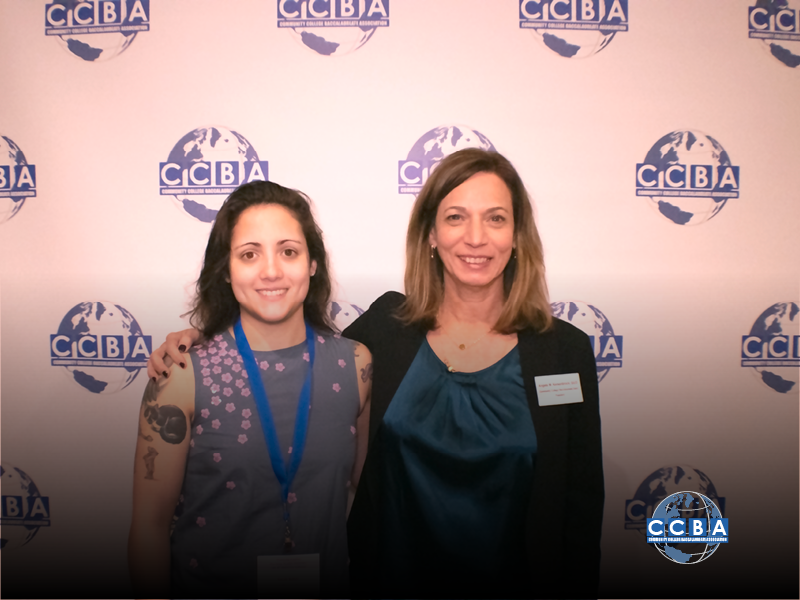
Read on for Angela’s inspiring story of lifelong dedication to higher education:
- Angela has helped countless students secure bachelor’s degrees at community colleges — including her own son!
- At Seminole State College, Angela wrote and deployed six different bachelor’s degree programs. The first semester of the BS in Business and Information Management? They secured more than 600 enrollments.
- Angela also established international partnerships between Seminole State College and universities in Scotland and Austria. As the president posits, “Why is it that community college baccalaureate students can’t have an international experience?”
- While working on her doctoral dissertation at age 60, Angela discovered the CCBA… And found the pathway to presidency after getting off of an elevator on the wrong floor!
Plus, get the deep dish on the upcoming conference. It’s an event you won’t want to miss. Spoiler alert: CCBA member and one of our amazing clients, South Texas College, will present on competency-based education!
Higher Education for Higher Earnings
We all know that it’s hard to earn higher wages without a college degree. According to the U.S. Census Bureau, 33 percent of Americans have a bachelor’s or more, and that extra degree can make all the difference.

Those with a high school diploma earn an average of $35,256 a year, averaging an unemployment rate of 5.4%. An associate degree bumps up paychecks to an average of $41,496, with a lower unemployment rate of 3.8%. And with a bachelor’s, those numbers become even more lucrative: making an average of $59,124 a year, those degree holders enjoy a low unemployment rate of 2.8%.
“People say that community colleges are the engine that help drive the economy of a community,” says Dr. Angela Kersenbrock. “I think that is really true.”
From Starting with Scrubs to Elevating Education
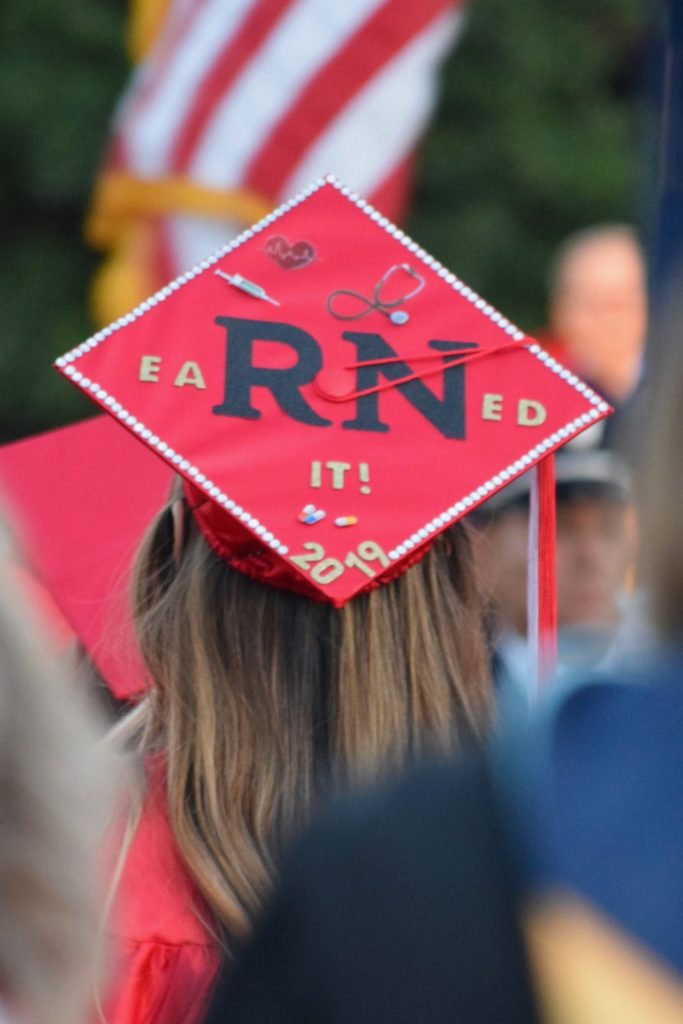
Angela started her career as a nurse, putting her passion for science and caring to work. From working in a neurosurgical ICU in Chicago to dialysis and transplant in Nebraska, she enjoyed the high-paced, compassionate career. Yet, she yearned to do even more.
“I always knew that I wanted to be in education,” shares the professor at heart. After earning her master’s, she first taught at the University of Nebraska and the University of South Florida before joining Seminole State College in Florida. Throughout her 34+ year career there, she would wear many hats, including program director and department chair.
When she became the Associate Vice President of the School of Business, Health and Public Safety, she oversaw departments like automotive and IT. By far, her favorite task was talking to industry and aligning with their needs. It was through coordinating degree efforts with local businesses that she helped Seminole develop bachelor’s degrees.
An Advocate for Community College Bachelor’s Degrees

“I knew our students needed those additional degrees in order to progress,” Angela explains. From nurses to aspiring police chiefs, a bachelor’s degree was their ticket to the future. According to the educator, that was especially true of underserved, underrepresented students — almost 50 percent of the student body in Florida.
The college began with a bachelor’s in Business and Information Management, and when they opened the doors, they had more than 600 enrollments. The program kept growing, and with the resounding success, they continued to replicate that model.
After writing and deploying six different bachelor’s degrees, each of which exceeded enrollment goals by +36 percent in their first years, Angela was hooked.
“I had helped develop more than 30 associate of science degrees and certificates, but those bachelor’s degrees really caught my heart, and that was it.”
What truly ignited her passion was the very first bachelor’s degree commencement, where entire extended families showed up to cheer for their grads.
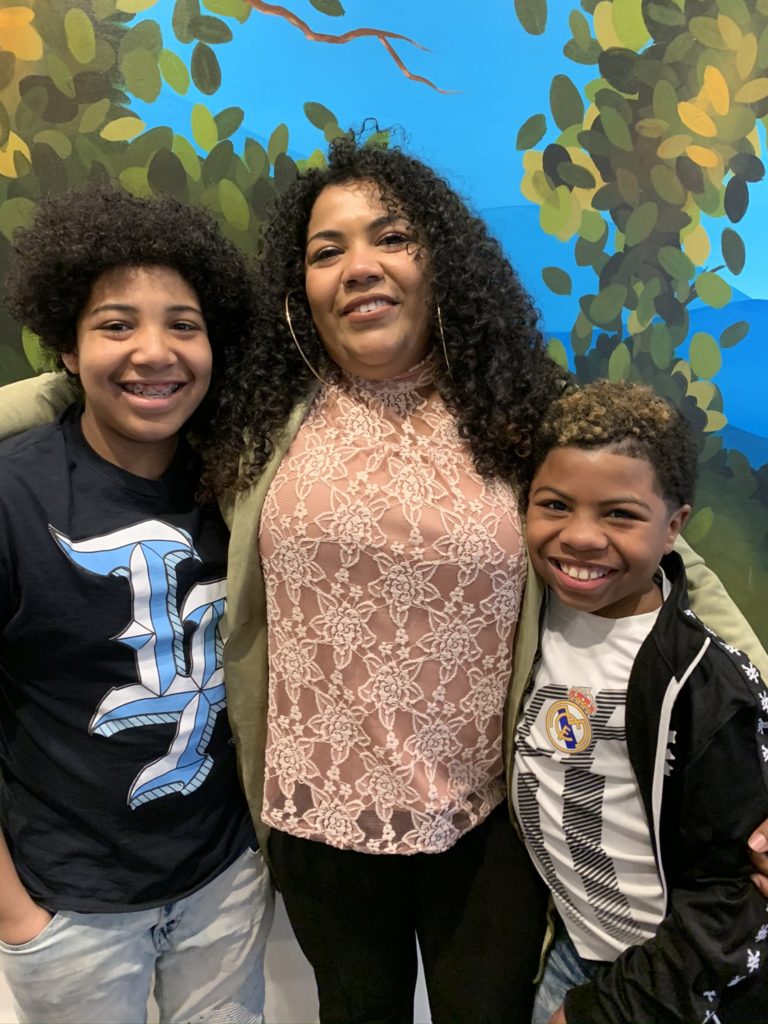
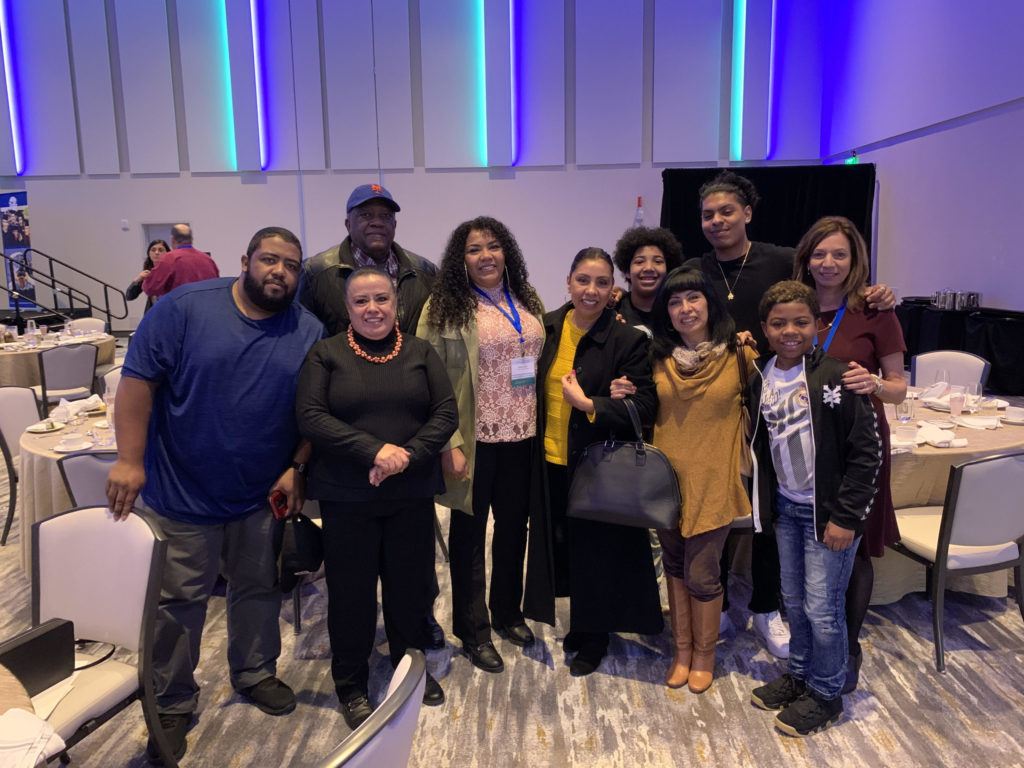
“I just could not believe it,” says Angela. “They never thought that anybody in their family was going to get a bachelor’s degree.”
Angela’s son was also among the first students to earn a bachelor’s in Business and Information Management. According to her, he was “taking the scenic route” and was lost when it came to college. After enrolling in his first semester, though, “he caught fire,” and today, he owns his own business. It’s just one victory of many that she’s witnessed over the years.
“I’ve seen so much success with people who thought they weren’t going to be successful,” shares the proud professor.
Discovering Surprising Stories of Bachelor’s Degree Earners

When Angela returned to school for her doctorate, her dissertation covered a qualitative analysis of community college baccalaureate and adult students, and she discovered something surprising.
“I did interviews with students, and I heard the same thing over and over again,” recalls Angela. Students would say to her, “If your college weren’t doing this, I would never get my bachelor’s. I’m doing this so my children will know they can go on and get a degree.”
Case in point: after one student received his bachelor’s, his daughter also earned hers and then secured a master’s in programming.
Angela also recalls the single mom who fought an opiate addiction while earning her AAS. The student discovered a community college offering a bachelor’s in health care management, enrolled… and realized the professor had actually been her intake counselor in rehab. Now, the young mother is a working professional in a rehab facility, helping others live healthier lives.
These are just a few stories of many demonstrating the power of community college baccalaureate degrees. That groundbreaking research inspired Angela to connect with the CCBA, where a chance meeting would change her life forever…
A Presidential Elevator Pitch!

While working on her doctorate, Angela started attending the CCBA’s one-of-a-kind conferences.
“I was meeting people that I was quoting in my dissertation,” she recalls. “I thought, oh my God, I’ve arrived!”
The third year she and her husband attended, they happened to get on the wrong elevator, wound up on the top floor, and decided to go exploring. That’s when they bumped into the then-president of the CCBA and struck up a conversation.
When the former president mentioned she was getting ready to retire, she asked if they knew of anyone who might be qualified to take her place.
“I’m thinking, it’s got to be somebody really seasoned,” Angela recalls with a smile. That’s when her husband cut in and replied, “I have the perfect person—Angela! She just got her doctorate in this, and she’d be perfect!”
Soon, she had lunch with the president… then an interview… and the rest is history! As Angela says, “It was one of those things where it was meant to be.”
And now, running the CCBA conference is one of the highlights of Angela’s year. Plus, her husband and son help out too!
Conference on Community College Bachelor’s Degrees and Equity
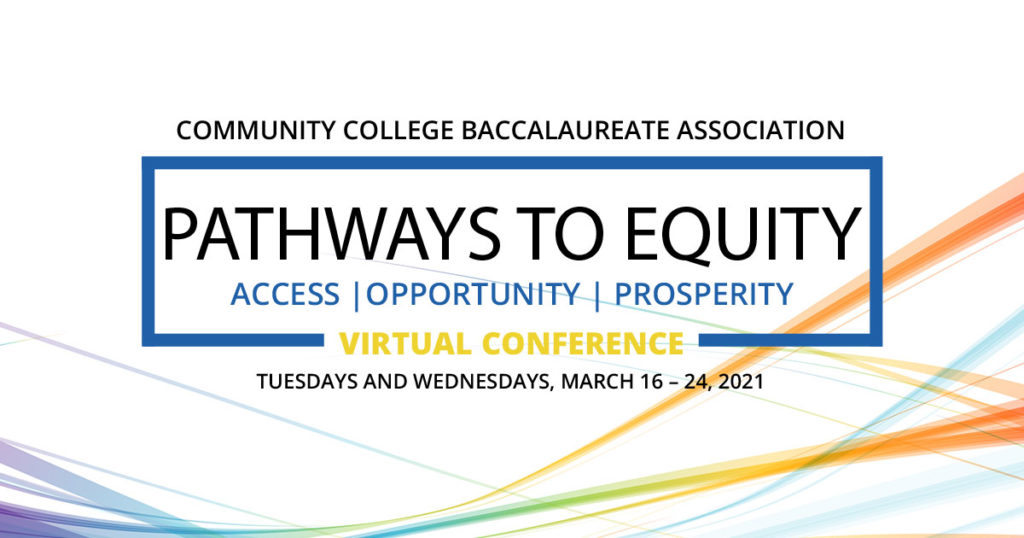
Partners in Equity & Ed
“This year, the level of sponsors we have is really great — I’m excited about them!” Angela gushes.
Interact is in good company among the ranks of sponsors dedicated to pursuing equity in higher ed. Other partners include EMSI, a labor market analytics firm that uses data to drive economic prosperity, and Pronto, a communication hub used by countless colleges in online learning.
Featured Speakers
At the conference, one of Interact’s amazing clients, South Texas College, will present how it uses competency-based education in its baccalaureate programs to expand opportunities.
“Students don’t have to sit down 48 hours in a seat to finish a course,” says Ali Esmaeili, Dean of Bachelor Programs at STC. “They know if they have prior knowledge, they can go faster, and that’s a real value.”
Also not to be missed is Dr. Anthony Carnevale, Professor and Director of the Georgetown University Center on Education and the Workforce. Dr. Carnevale also served on the White House Commission on Technology and Adult Education under President George Bush and has been a senior staff member in both houses of the U.S. Congress.
Conference Details
This year, the 100-percent virtual conference has been discounted from its regular price of $495 to $149 for members and $199 for non-members. Events take place from 12 to 4:30 p.m. EST, on Tuesdays and Wednesdays from March 16 to 24. It’s the perfect chance to attend if you’ve never been to it before! Visit the CCBA’s website for more info and to register.
Conclusion: Education is Key to Prosperity

The CCBA’s website states, “An educated populace is the foundation of a free and prosperous society.”
With a focus on equity in this year’s conference, Angela says the timing couldn’t be better for discussing bringing significant opportunities to more people.
“We don’t just change a student — we change a family for generations,” says the CCBA president about the power of accessible bachelor’s degrees. “That is what we are about.”
So far, 23 states allow community colleges to offer some level of baccalaureate degrees. And in a matter of weeks, California’s legislature will be considering bachelor’s degrees for the state’s 114 community colleges, with a few other states also underway. This season may bring the country past the tipping point.
But for Angela, more than half of the country’s community colleges being equipped with bachelor’s degrees is just the beginning:
“I told the team: I’m not resigning until we have all 50!”

Join Interact and Dr. Angela Kersenbrock this March at the CCBA’s Pathways to Equity Virtual Conference! We hope to see you there!
For more, check out our latest podcast episode, “Creating New Opportunities: How Offering Bachelor’s Degrees Can Transform Students’ Lives.” Dr. Cox-Otto and Dr. Kersenbrock discuss the benefits of creating baccalaureate programs not only for colleges but for students, too!



